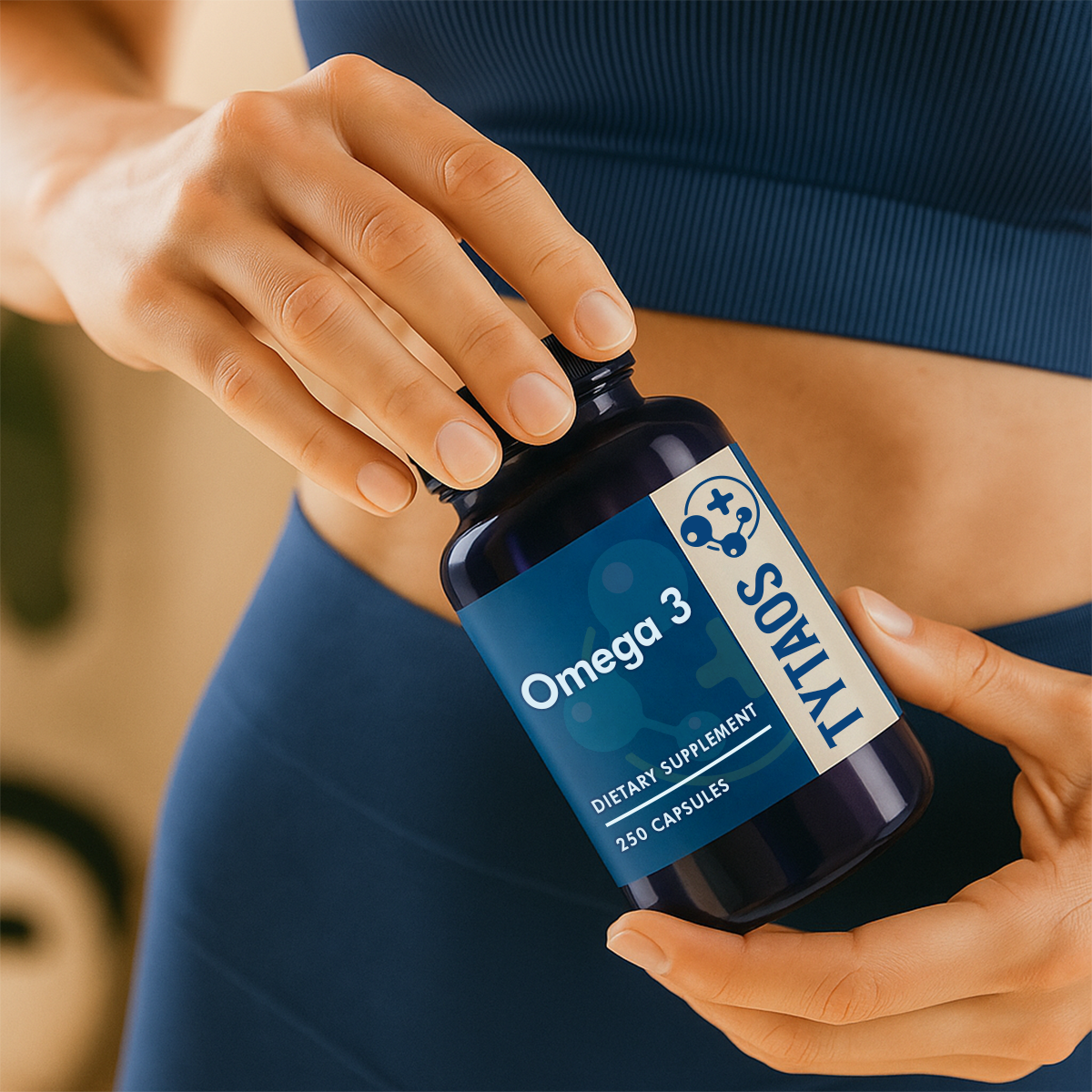Omega 3
Omega 3

BUNDLE & SAVE
Couldn't load pickup availability




Ingredients
Omega -3-ethyl ester (fish), Mixed Tocopherol, Gelatin (fish), Glycerol, Water.
Directions / Dosage
Recommended dose 1 capsule per day with food. The stated recommended dose can be changed as directed by your healthcare practitioner. Do not exceed this recommended dose. Consume within 3 months of opening.
Warning
If pregnant or breast feeding, consult your health care practitioner before using. This product should not be used as a substitute for a varied diet.

What is Choose Metabolics Omega 3 oils?
Metabolics Omega 3 oils are sourced from the flesh of the fish and not the livers. It is extracted from anchovy, sardine and mackerel caught off the coast of South America. It is a by-product of the Peruvian fishing industry, therefore making use of a product considered a waste product of another industry.
Harvesting of fish for the General Law of Fishery regulates the fish oil industry and Marine Institute of Peru which constantly monitors Peruvian waters to ensure the presence of a constant biomass, thereby avoiding deprivation. The anchovy, Peru’s main fish species in the production of fish oil has maintained its population for the past 50 years due to a responsible catch policy. Every batch of oil is accompanied by a certificate of analysis which demonstrates that toxicity level of stated toxins such as pesticides and heavy metals is either non-existent or well below the permissible levels.

Why Choose Metabolics Omega 3 oils?
Omega 3 oils are one of a group of fats, which together with Omega 6 fats are Essential Fatty Acids (EFA). This means that they are essential for human health but cannot be made by the body. They have to be obtained from the diet.
Omega 3 fatty acids are a group of 3 fats called ALA (Alpha Linoleic Acid - found in plant oils) EPA (Eicosapentaenoic acid) and DHA (Docosahexanoic acid) found in oily fish such as mackerel, herrings, sardines and salmon as well as algae and krill. The body is able to convert ALA to EPA and DHA, although it is not very efficient, making oily fish an important part of the diet.
Omega 6 oils are found in plant oils and some animal fats.
A ratio of 1:1 of Omega 3:6 oils is considered optimal. As Omega 6 is quite abundant in the Western diet, any deficiency is more commonly of Omega 3.




